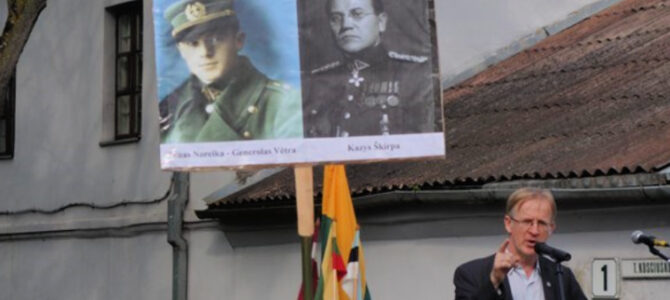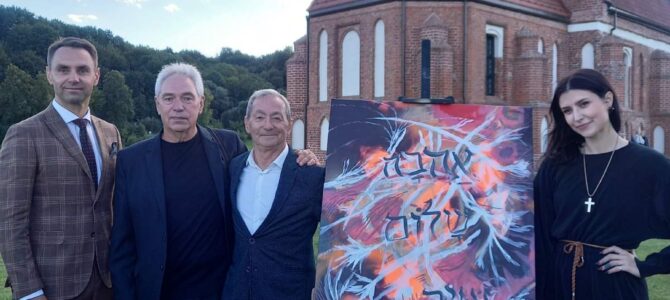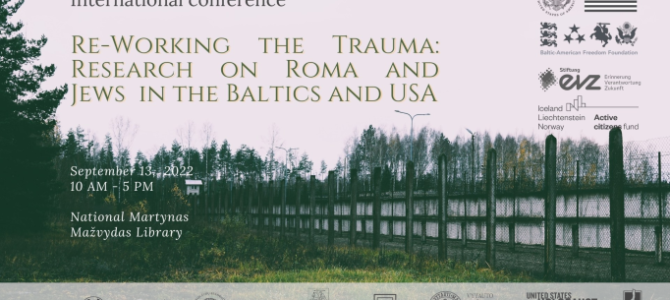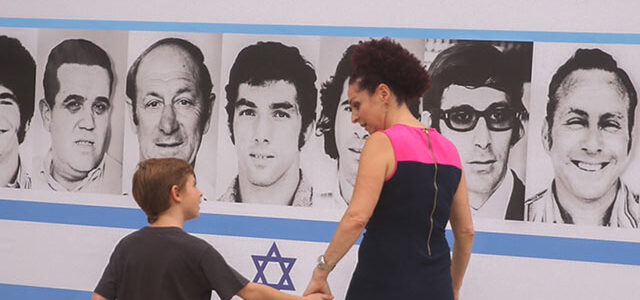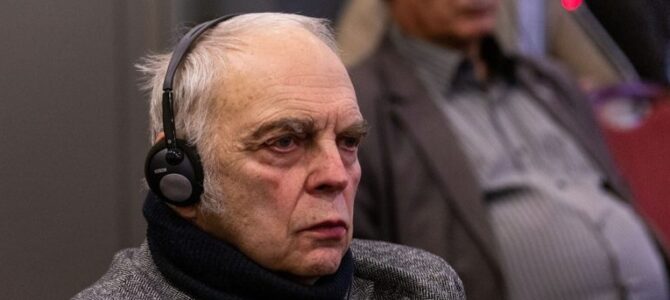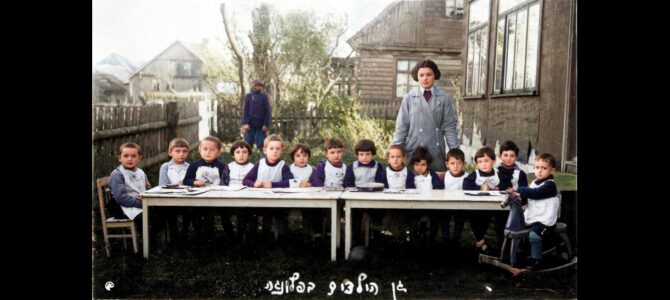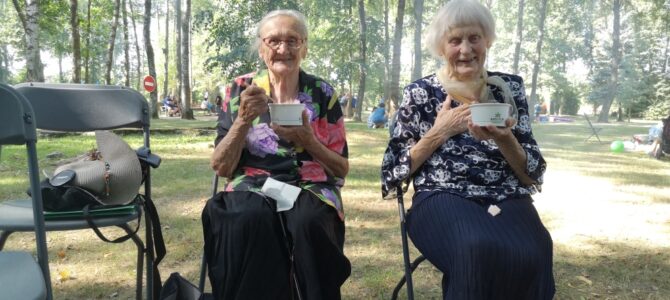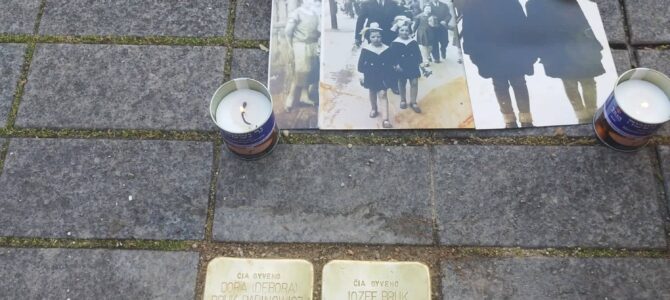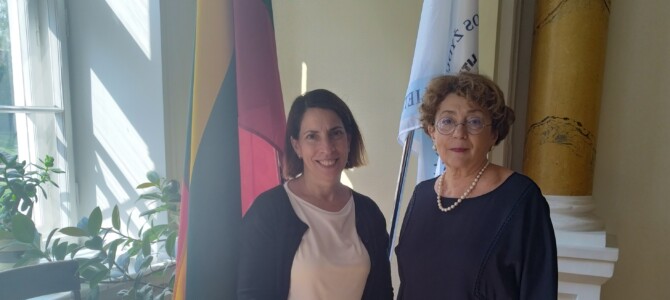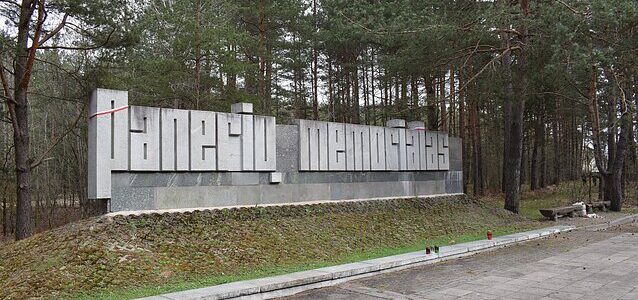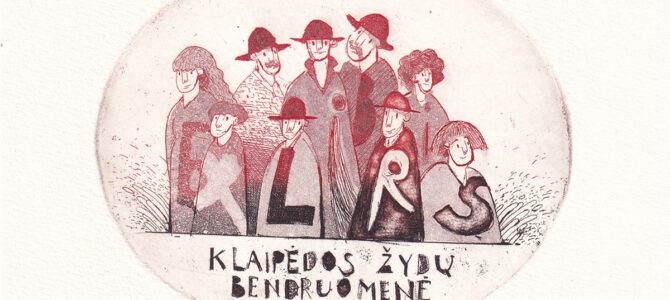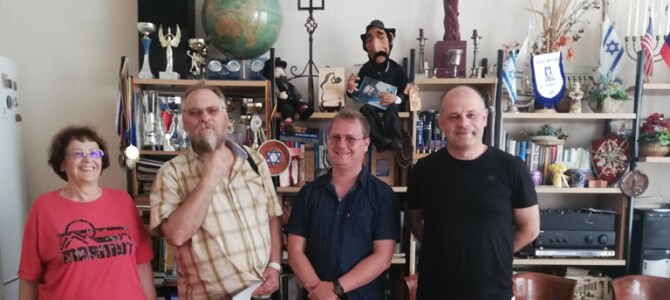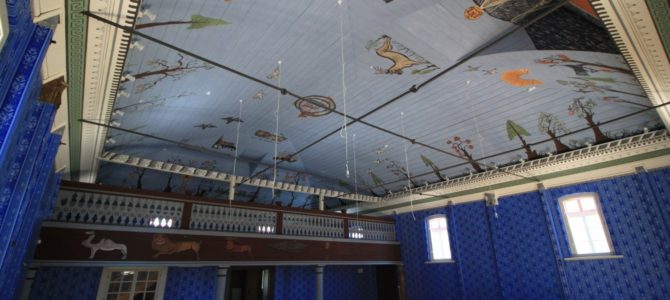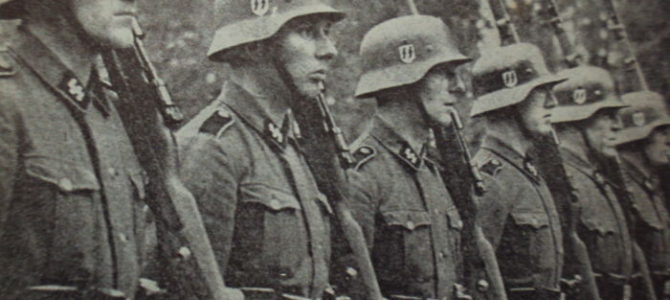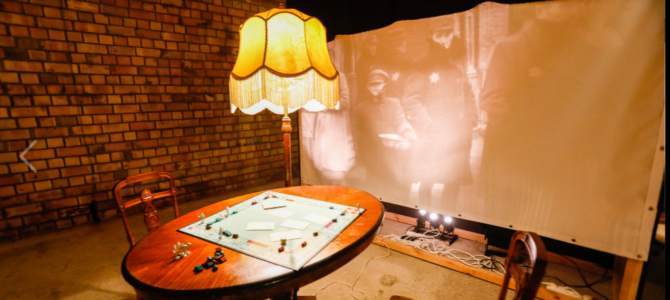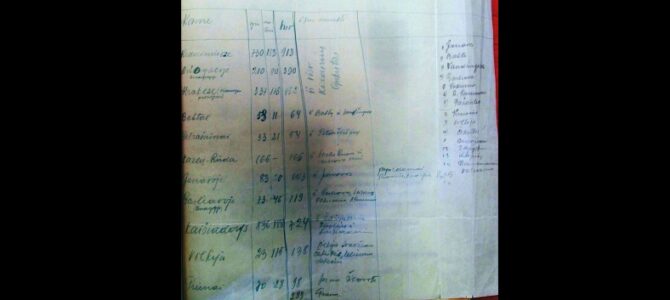Photo: Arūnas Bubnys, director Lithuania’s Orwellian-named Center for the Study of the Genocide and Resistance of Residents of Lithuania, speaks at a right-wing rally on June 23, 2020, against a backdrop of Lithuanian Nazis Jonas Noreika and Kazys Škirpa. Photo courtesy Dovid Katz.
by Alan Zeitlin
In one scene from the powerful and horrific documentary Baltic Truth, Riga ghetto survivor Marger Vesterman plays the piano to the tune of a song created in the ghetto. He then recalls what the words were: “If you survive, no one has to remind you that you have responsibilities.”
The chilling documentary reminds us that it was not only Nazis who massacred Jews. In this case, Latvians and Lithuanians were all too eager to quench their thirst for Jewish blood, even if it meant shooting neighbors with whom they’d previously celebrated birthdays.
The searing documentary is narrated and hosted by Israeli singer Dudu Fisher. Fisher explains that his mother Miriam was born in Riga in 1932, and that if much of his family hadn’t moved to Mandatory Palestine, he would have been “among the millions of unborn Jewish children.”


